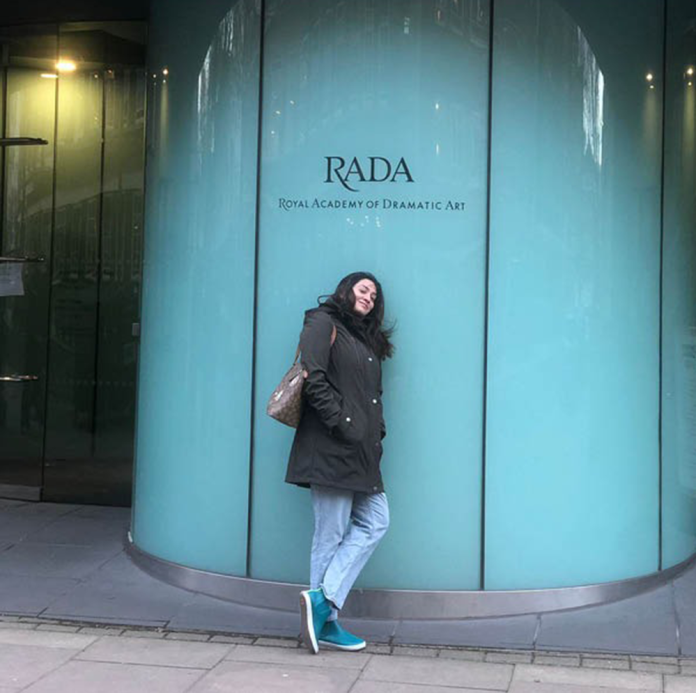Pakistan’s first actress to have completed her Master’s program from the prestigious Royal Academy of Dramatic Arts-RADA, Hani Taha, shared her experience at a NAPA Talk on Thursday at the Zia Mohyeddin Theater about how after studying at National Academy of Performing Arts-NAPA’, she got the opportunity to get admitted to RADA’s Master’s program.
Recalling her experiences in both institutions, she said her teachers at NAPA were as good as those she came across at RADA. The difference, she said, was certain courses that in her times were not being taught here.
She was also full of praise for her batch mates at NAPA. “Our batch was a big one, with some 60 students in it,” she said. “Some of them were exceptionally talented. But then I lost interest because the focus of our teachers was on weaker students who were not that interested in learning.”
She had dropped out towards the end of her three-year diploma.
She recalled the time spent with Zia Mohyeddin saying she could not finish one monologue in front of him because she would become petrified.
On one occasion, the first time she was trying to deliver a monologue, the great thespian was smoking. She, being allergic to cigarette smoke, had started to cough. This irritated Zia Mohyeddin who asked her why was she coughing.
“I told him I was allergic to cigarette smoke on which he said then I should quit smoking,” she recalled. But a colleague from the class had then explained to Zia that she was referring to his cigarette. Embarrassed as he had become, he immediately went out and then came back minus that cigarette, she recalled.
“Never again did we see Zia sahib smoke,” she said.
Talking about Zia Mohyeddin, she became emotional and had to stop to wipe her tears off.
Hani Taha’s major focus of the discussion later was on her days spent at RADA. She said NAPA made my base for RADA. She recalled the admission process before which she was convinced she would not get acceptance from the London-based school.
“My husband supported me and said I should apply without hesitation,” she said.
But her application was accepted which led to a series of auditions. Her final acceptance letter was a cause of celebration in her in-laws’ house though her own father did not approve of her going to a drama school.
One hurdle she faced was that since she needed a prayer space at RADA, something unheard of there, generally she was kept at a distance. She had also thought her annual submission for a monologue would raise eye brows as it was about Gaza. But teachers were supportive.
“I was so frightened of the course that every week I would go to my teacher and say I am a misfit,” Hani Taha told an attentive crowd. The teacher always told her that she had been selected on merit and should not consider her anything of lesser importance that her peers.
Later, the house was opened for a Q&A session in which she said she would pursue her acting career on theater though TV was also not out of question.
Hani Taha’s batchmate from NAPA, Jibran Khan, conducted the program.


